PRESS RELEASE: ACE Impact Launches its First Students Innovation Research Awards (SIRA)
For Immediate Release
Africa Higher Education Centres of Excellence for Development Impact (ACE Impact) to Reward Quality, Applied Research and Innovation
ACE Impact Launches its First Students Innovation Research Awards (SIRA)
Accra, Ghana, September 15, 2022. The Africa Higher Education Centres of Excellence for Development Impact (ACE Impact) project is announcing a call for applicants for its first Students Innovative Research Awards (SIRA). SIRA recognizes and promotes excellent research and innovation which responds to Africa’s developmental challenges. Established by the Regional Facilitation Unit for ACE Impact, the Association of African Universities (AAU), with support from the World Bank, SIRA deepen the project’s commitment to advancing the production of innovative and impactful knowledge
The ACE Impact project aims to advance the quality, quantity, and access to post-graduate education within the region.
Through this award scheme, the project will recognise exceptional research with both scientific and societal value undertaken by students from the 53 African Centres of Excellence. The practical and long-term impact of the research conducted is essential to the region’s most critical priority areas. Students are at the heart of this project. As primary ambassadors, SIRA targets students to boost their interest in implementing the skills and knowledge acquired to drive national and regional development and growth. Submissions are accepted under the following thematic areas; health, power generation, and transmission, renewable energy, mining and extractives, sustainable urban planning and transport, sustainable agriculture, environmental sciences, education, and information
and communication technology (ICT). For each thematic area, three awards (1st place, 2nd place, and 3rd place) will be presented.
Industry and development partners with an aligned vision to support and improve the next generation of Africa’s highly skilled workforce through mentorship, hands-on training, and funding, among other kinds of support, are invited to collaborate on the SIRA initiative.
Application Details: Only students enrolled in the 53 centres of excellence under the ACE Impact Project are qualified to make a submission under this award. Interested applicants are encouraged to visit https://sira.ace.aau.org/ for further information.
Application Deadline: 30th September 2022
Contact
For further enquiries related to the Awards, please contact:
- Mr. Schneineda Ankomah via email skankomah@aau.org
- Mr. Enoch Kpani via email tekpani@aau.org
For Enquiries by the Media, please contact:
- Mrs. Millicent Afriyie via email makyei@aau.org
For Partnership related information, please contact:
- Dr. Sylvia Mkandawire vía email smkandawire@aau.org
Background Information
The Africa Higher Education Centres of Excellence (ACE) Project is a World Bank initiative in collaboration with governments of participating countries to support Higher Education Institutions specializing in Science, Technology, Engineering and Mathematics (STEM), Agriculture and Health. Environment, and Social/Applied Science and Education. It is the first World Bank project aimed at the capacity building of higher education institutions in Africa.
The project promotes increased specialization among participating universities, focusing on addressing specific common regional development challenges. It aims to strengthen the capacities of these universities to deliver high-quality training and applied research, closing the skills gap, and meeting the demand required for for Africa’s development. The first phase (ACE I) was launched in 2014 with 22 Centres of Excellence in Nine (9) West and Central African countries; Benin, Burkina Faso, Cameroon, Côte d’Ivoire, Gambia, Ghana, Nigeria, Senegal, and Togo. The second phase (ACE II) was launched in East and Southern Africa with 24 centers across Ethiopia, Kenya, Malawi, Mozambique, Rwanda, Tanzania, Uganda, and Zambia.
Based on the initial successes, the World Bank Group and the French Development Agency (AFD) in collaboration with the African governments, launched the ACE Impact Project in 2019 to further strengthen post-graduate training and applied research in existing fields and support new fields that are essential for Africa’s economic growth. There are 53 ACEs specializing in the broad thematic areas of Science, Technology, Engineering and Mathematics (STEM), Agriculture, Health, Environment, and Social/Applied Science and Education with a priority focus in sustainable cities; sustainable power and energy; social sciences and education; transport; population health and policy; herbal medicine development and regulatory sciences; public health; applied informatics and communication; pastoral production; entrepreneurship and innovation, among others.
Since its inception, more than 22,000 students have been enrolled under the ACE Impact project. This includes almost 3,000 PhD students, close to 10,000 MSc students, and over 10,000 students enrolled in professional short courses. As a regional initiative, student enrolment extends beyond the participating countries to other African countries including Burundi, and Gabon, among others. In line training and research global standards, the majority of programmed rolled out by the centres are internationally accredited and centres are provided with enabling teaching, learning, and research environment and facilities, including state-of-the-art equipment and laboratories.
For more information on the ACE Impact Project, visit https://ace.aau.org
About Organizers
About the Association of African Universities (AAU): The Association of African Universities is an international non-profit, non-governmental organization created by African Universities to promote cooperation and collaboration amongst the universities, whilst simultaneously building a bridge to the international academic community. Created in 1967, the AAU is the voice of higher education in Africa. AAU aims to improve the quality of African higher education and strengthen its contribution to Africa’s development. Through supporting core functions of higher education institutions, AAU facilitates critical reflection and consensus, building on issues affecting higher education in Africa. The AAU is the Regional Facilitation Unit of the Africa Centres of Excellence project.
About the World Bank Group: The World Bank Group is a multilateral development institution that works to reduce poverty and boost shared prosperity. Its subsidiary IDA (International Development Association) finances the Africa Centres of Excellence series of projects. Established in 1960, IDA helps the world’s poorest countries by providing grants and low to zero-interest loans for projects and programs that boost economic growth, reduce poverty, and improve poor people’s lives. IDA is one of the largest sources of assistance for the world’s 75 poorest countries, 39 of which are in Africa. Resources from IDA bring positive change to the 1.5 billion people who live in IDA countries. Since 1960, IDA has supported development work in 113 countries. Annual commitments have averaged about $18 billion over the last three years, with about 54 percent going to Africa
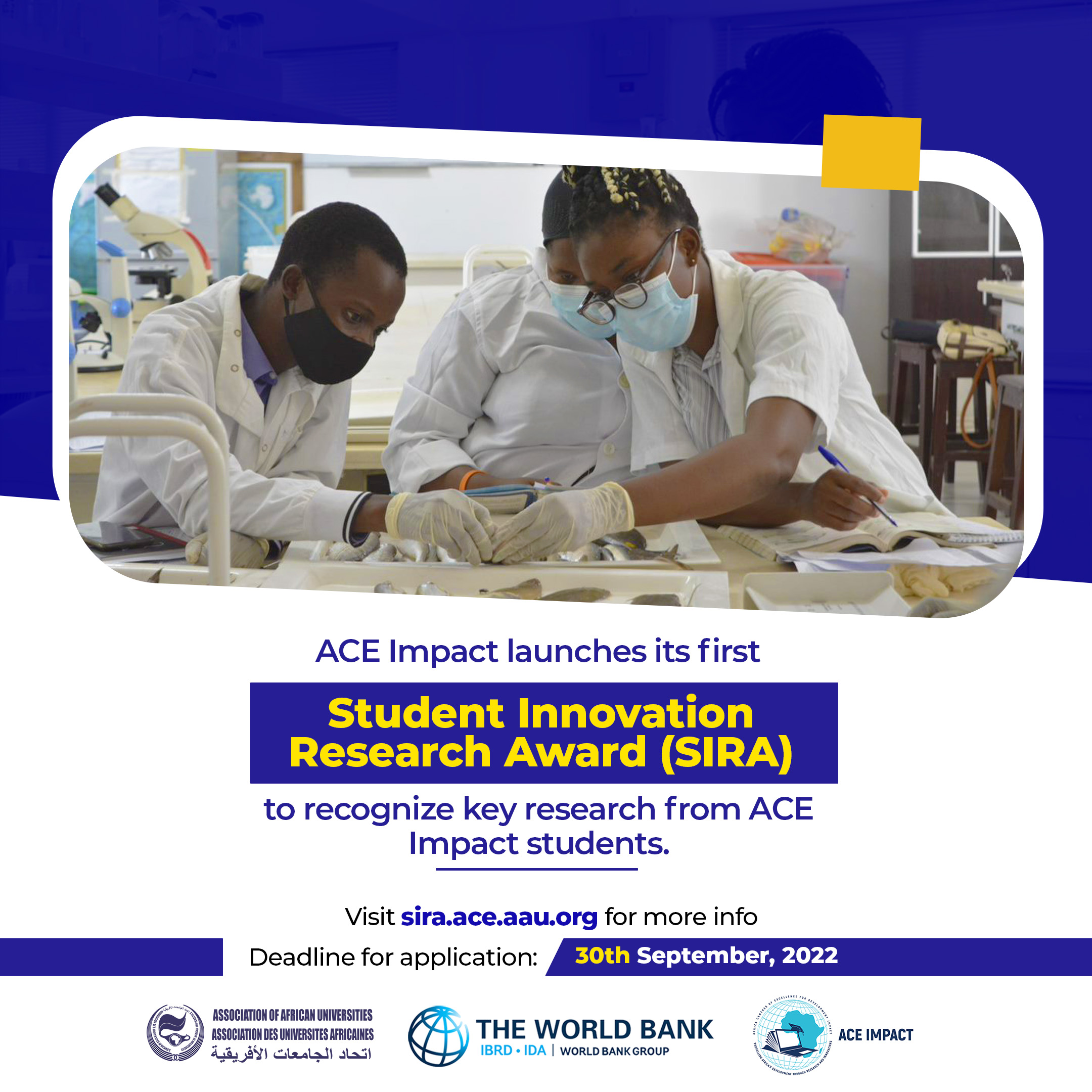
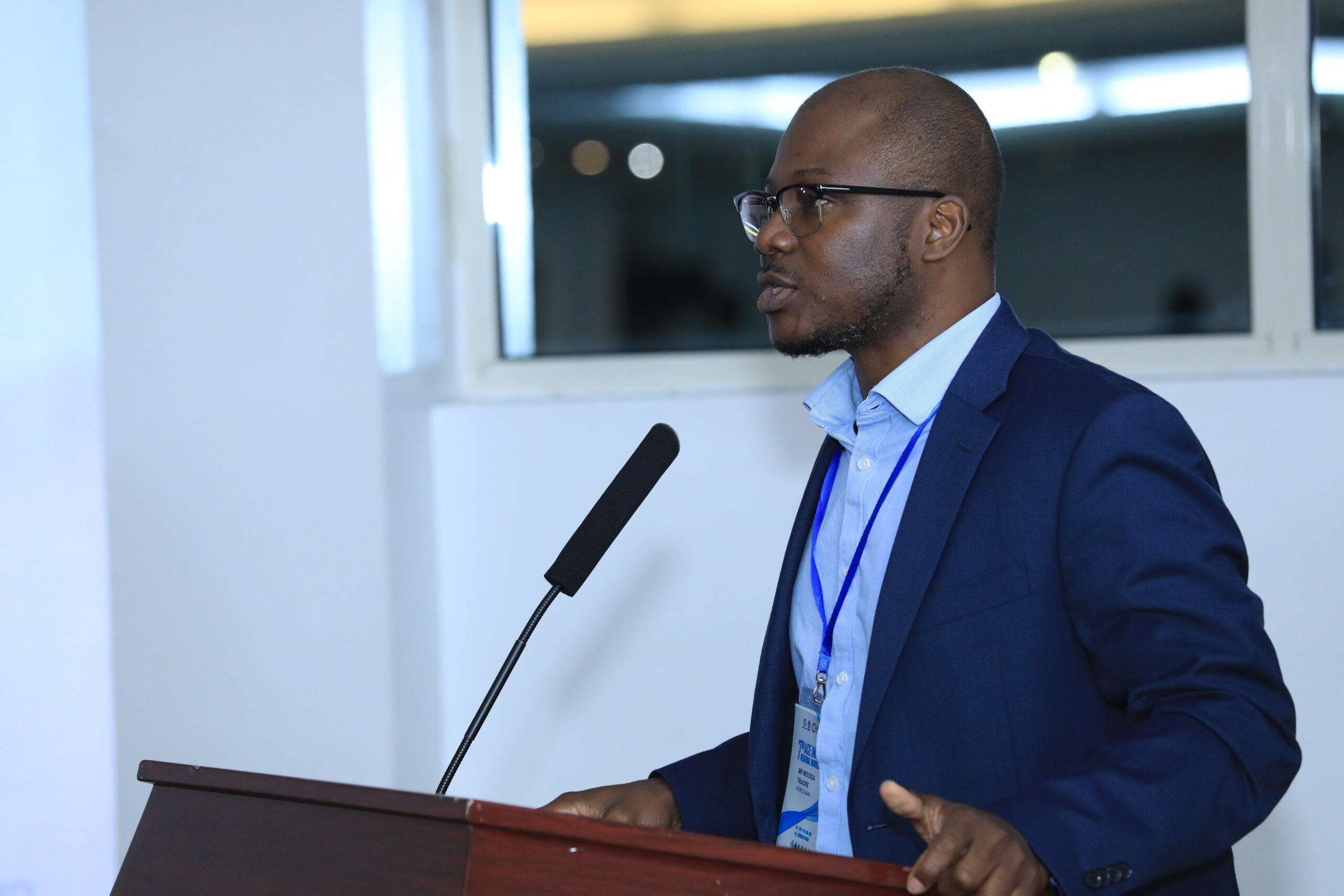
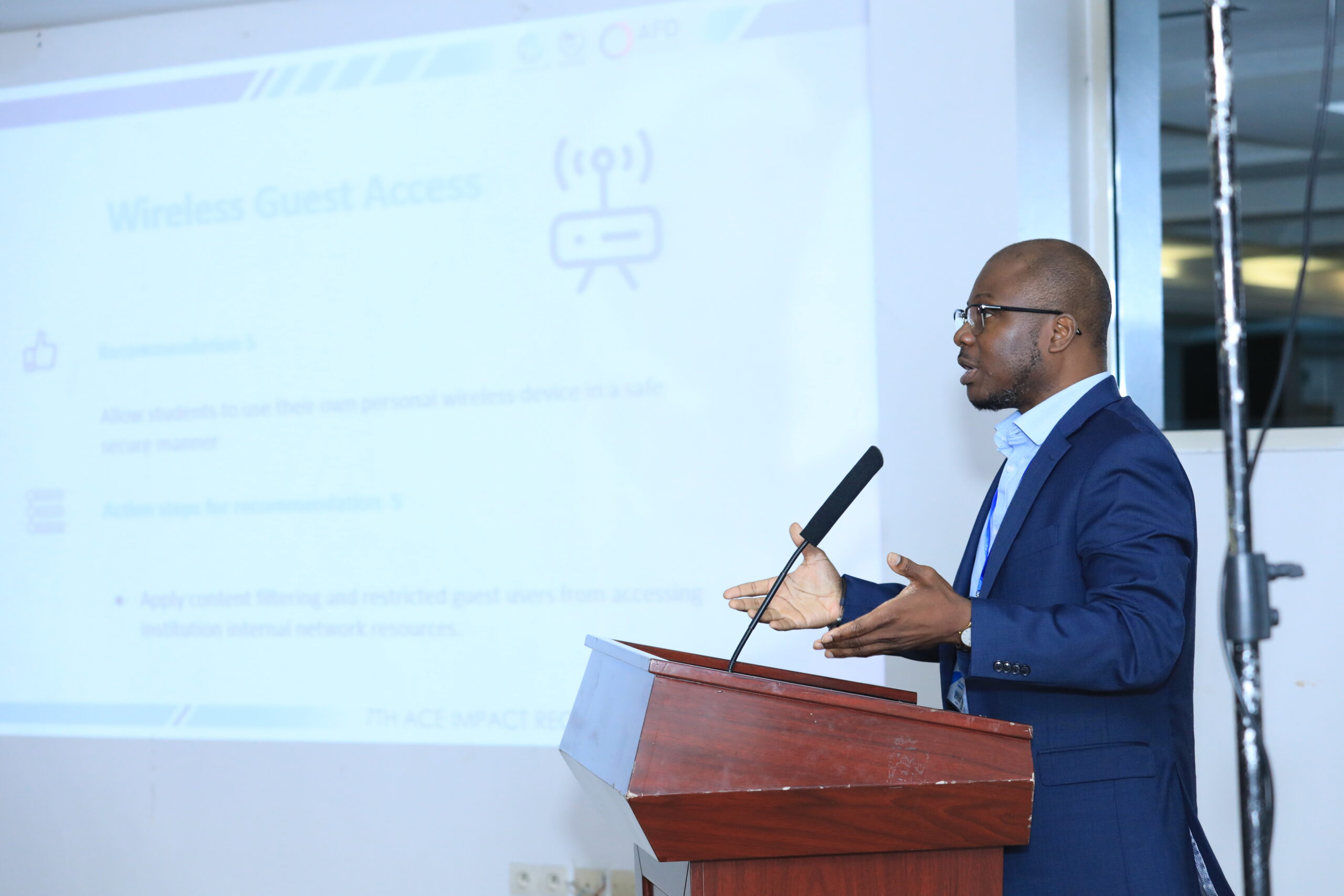
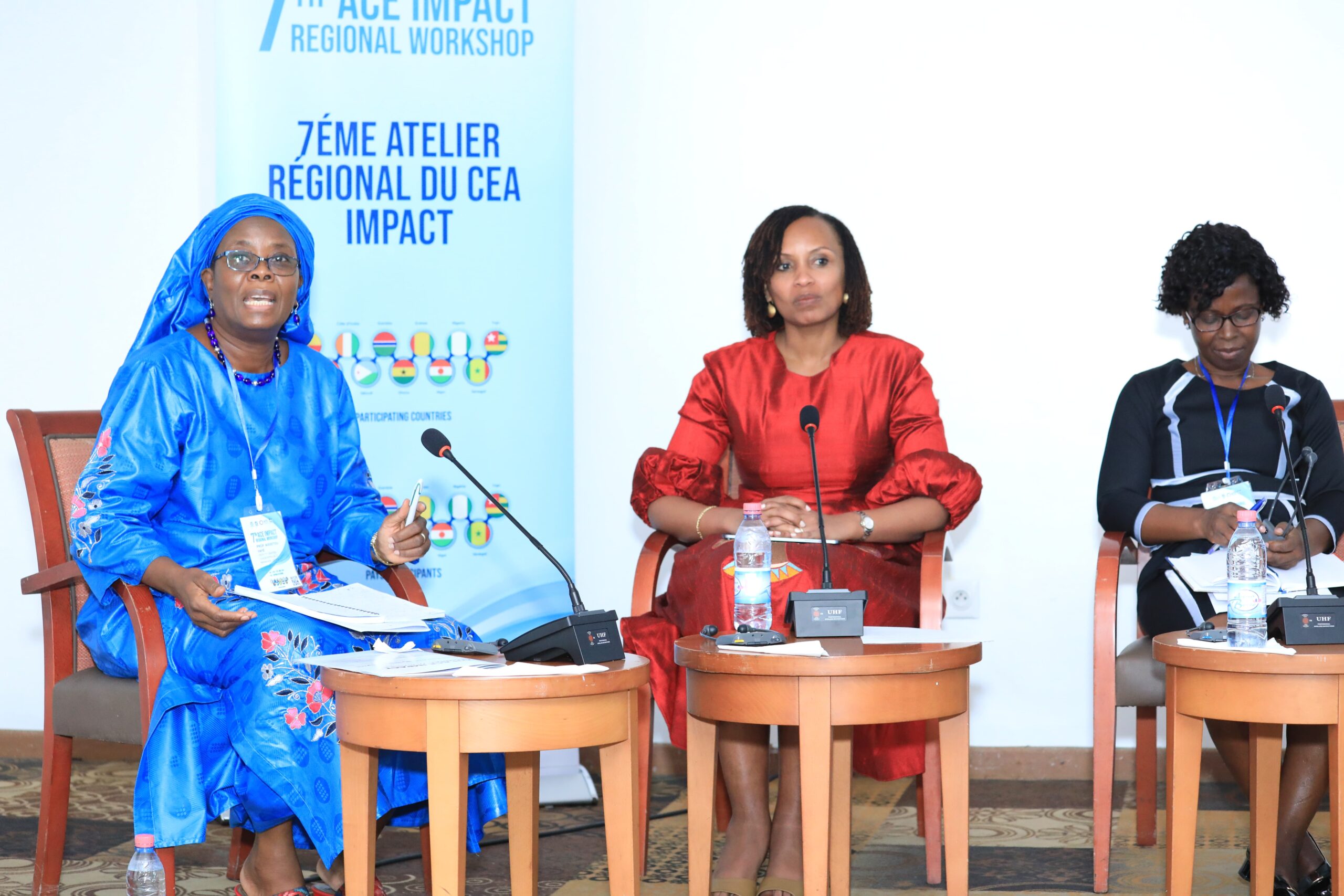
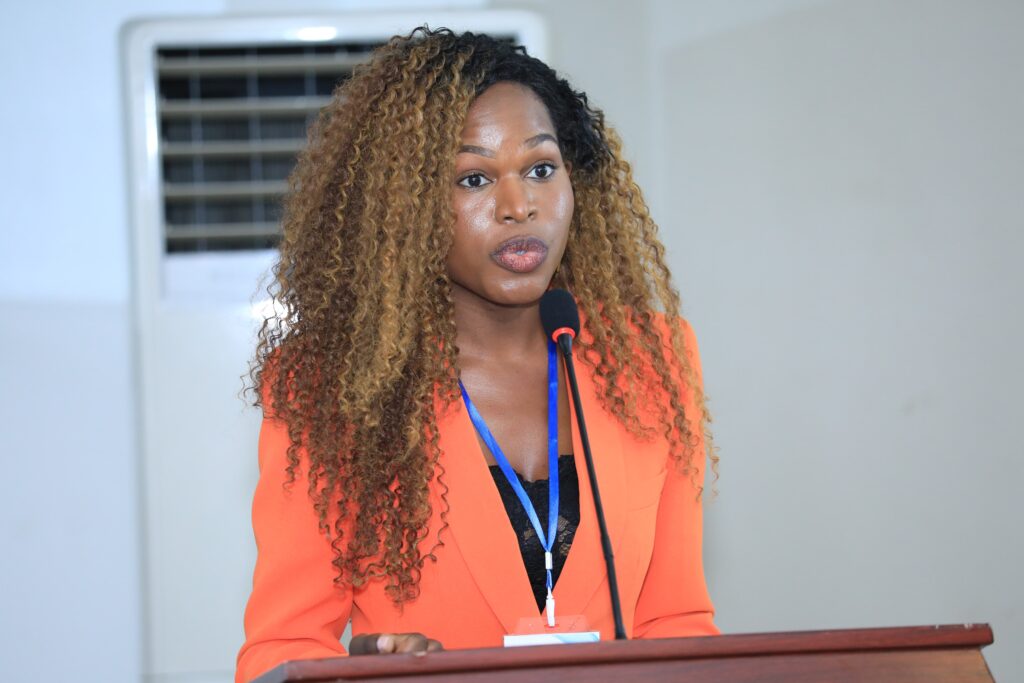
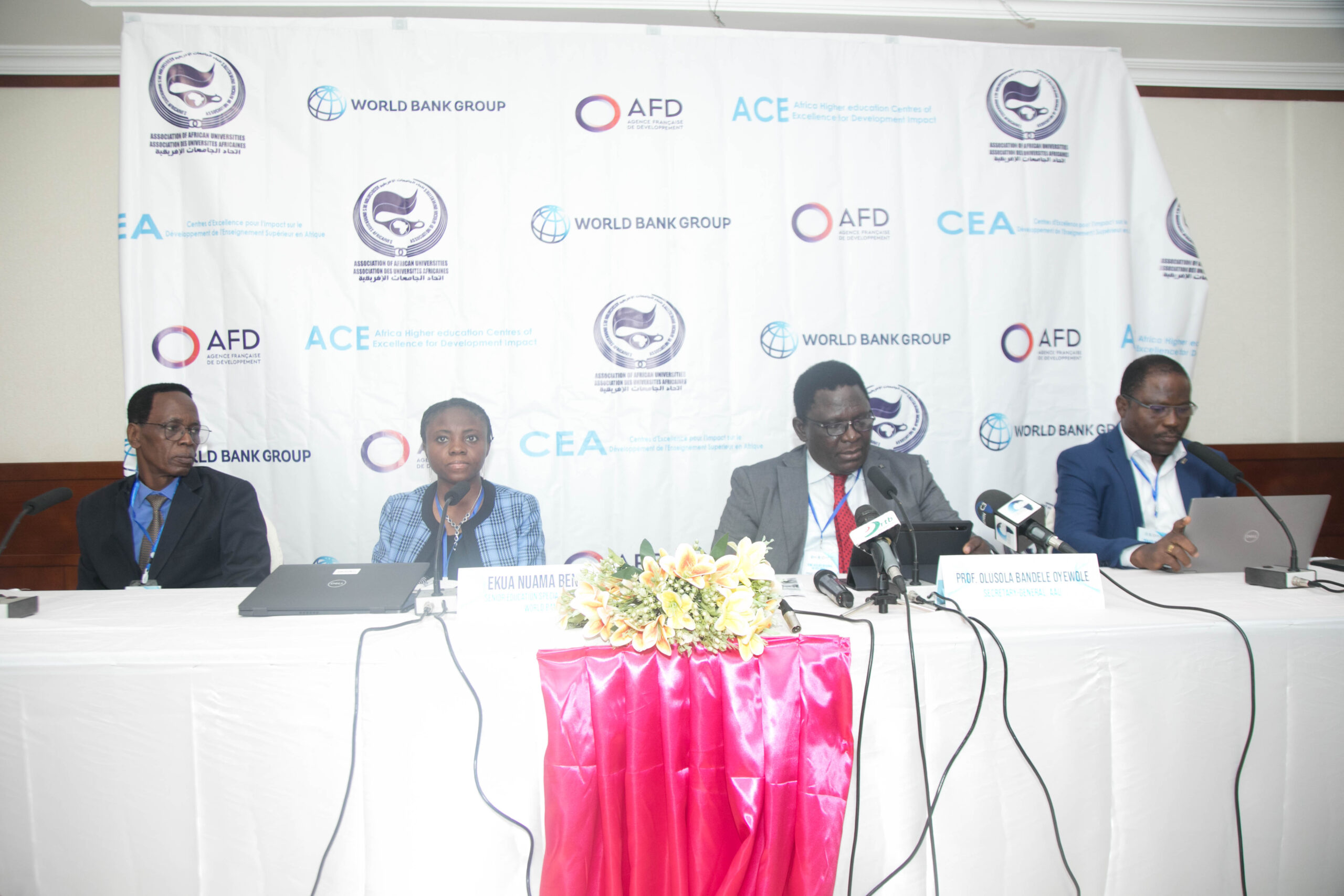
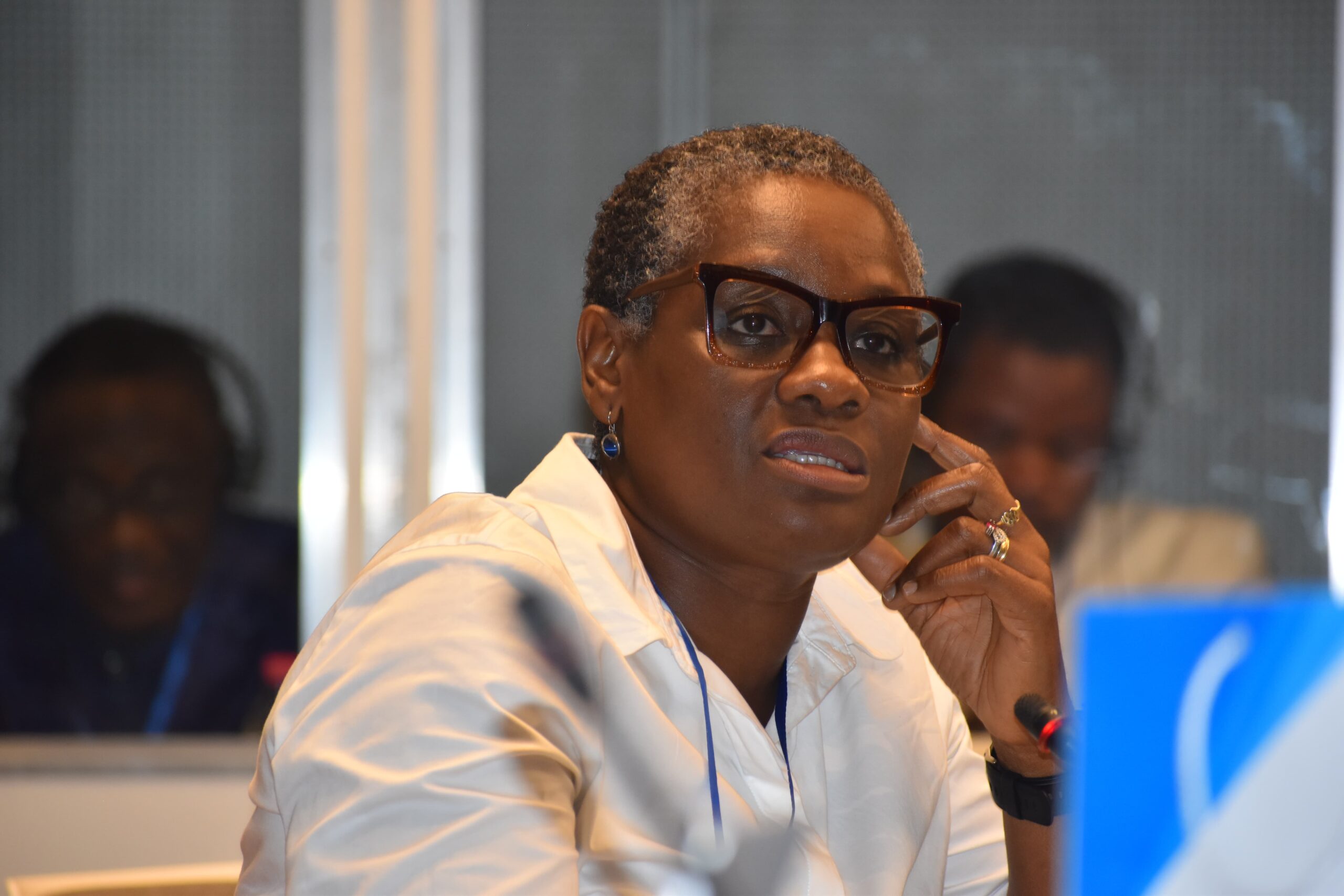
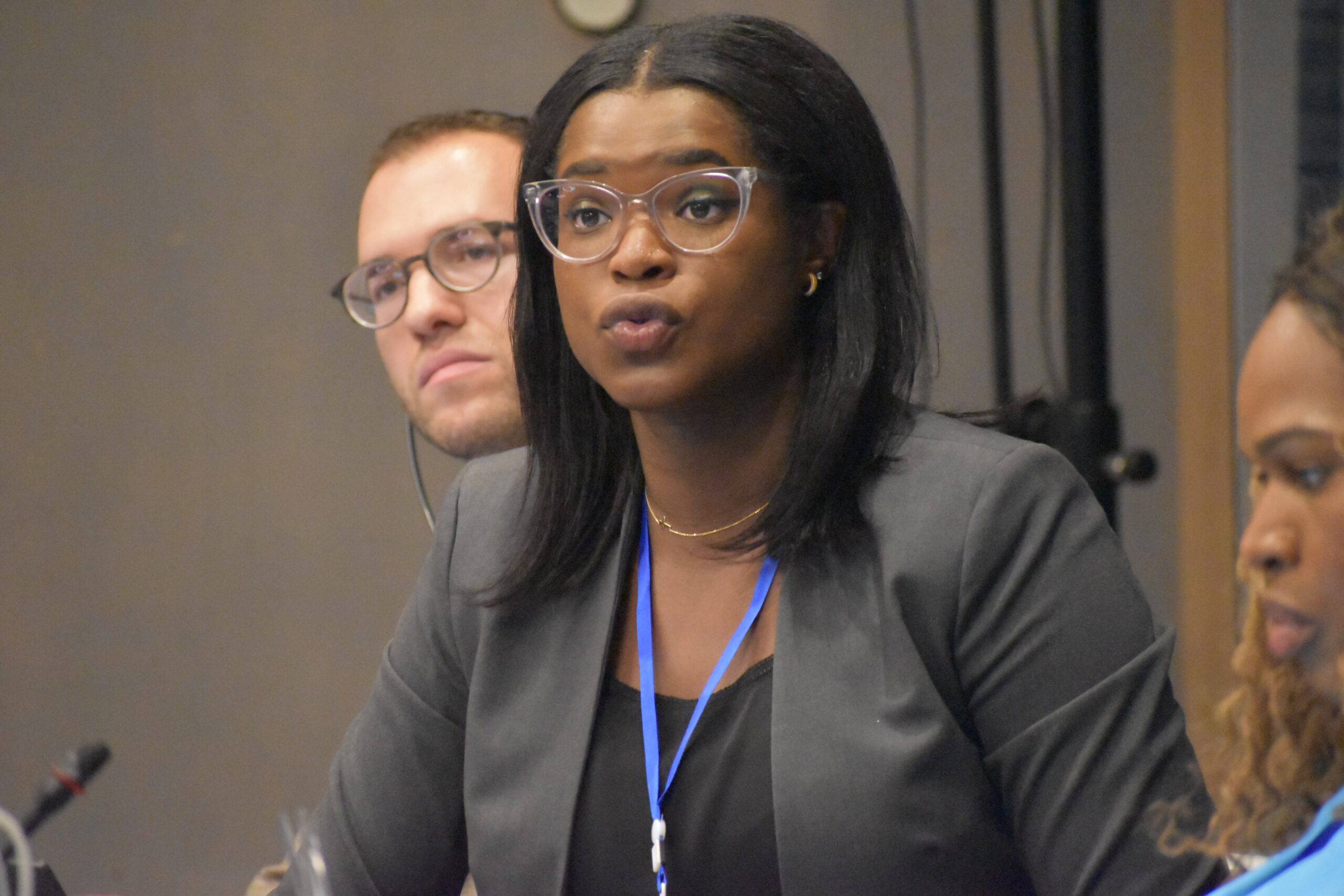
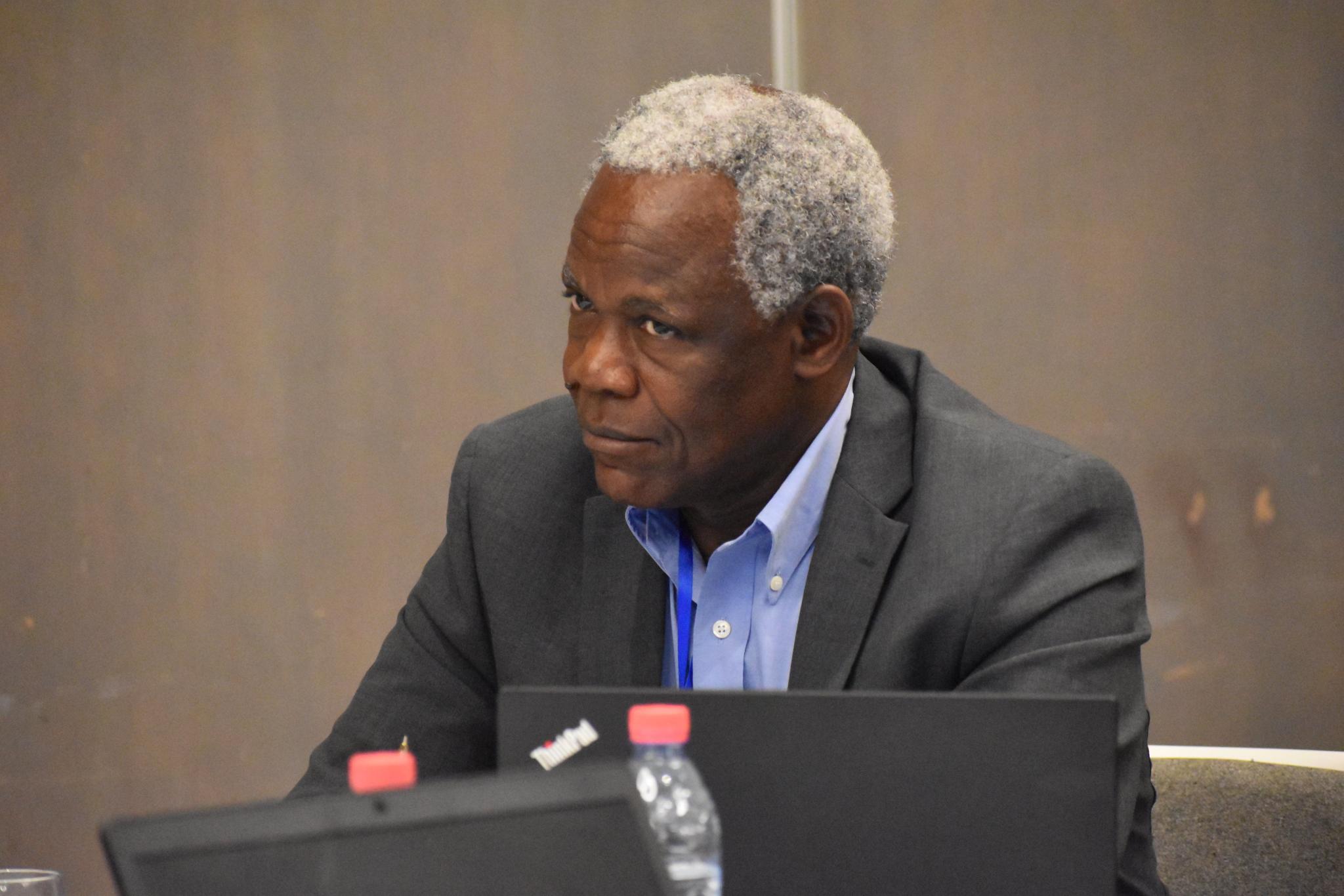
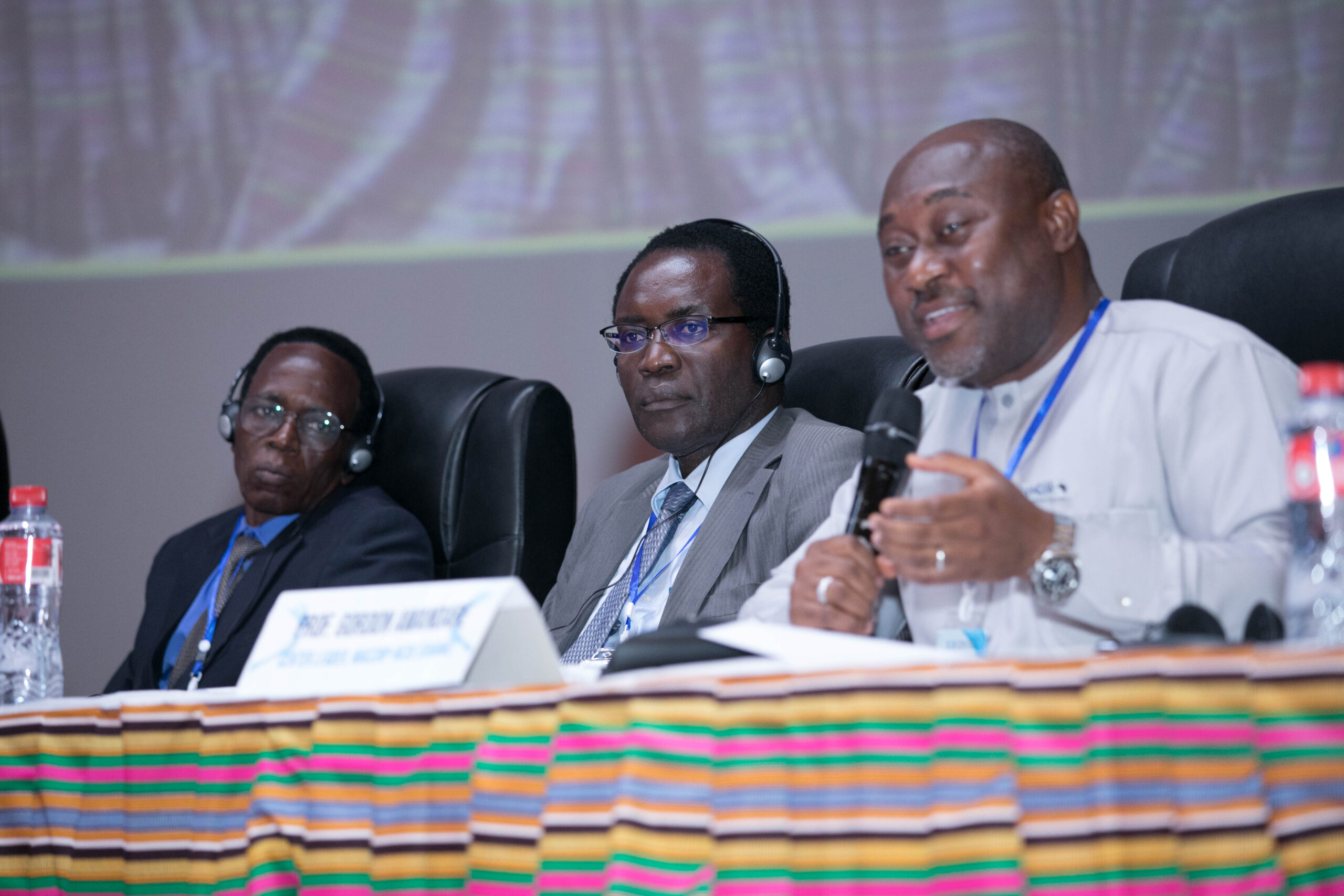
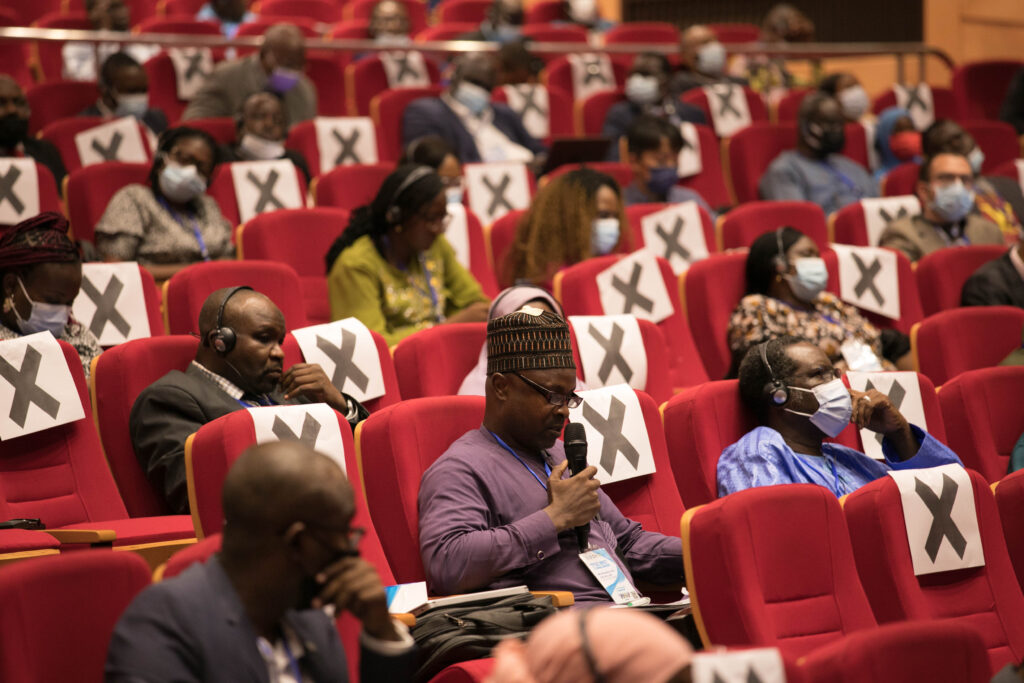

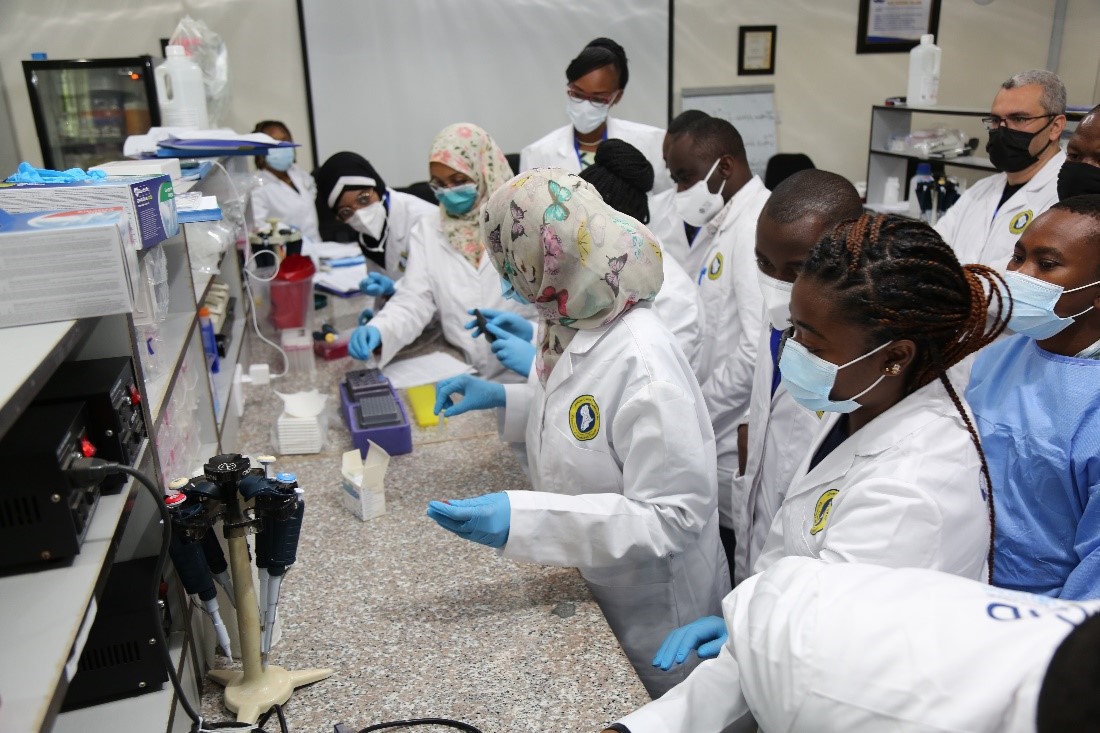

 He noted that “Food fraud has become an evolving challenge in the Nigerian health system that has led to the deaths of many people, especially the vulnerable groups that include mostly children, the elderly, and immune-compromised persons. Although food and health researchers, as well as regulatory bodies, have implemented a wide range of instrumental techniques such as chromatography, mass spectrometry, among others to monitor food fraud and authenticity, food fraud is still ongoing in diverse localities because the wide gap between the lab, consumer and the market is unabridged.” Therefore, as part of his study, Garjila seeks to provide innovative techniques in detecting and mitigating food fraud.
He noted that “Food fraud has become an evolving challenge in the Nigerian health system that has led to the deaths of many people, especially the vulnerable groups that include mostly children, the elderly, and immune-compromised persons. Although food and health researchers, as well as regulatory bodies, have implemented a wide range of instrumental techniques such as chromatography, mass spectrometry, among others to monitor food fraud and authenticity, food fraud is still ongoing in diverse localities because the wide gap between the lab, consumer and the market is unabridged.” Therefore, as part of his study, Garjila seeks to provide innovative techniques in detecting and mitigating food fraud.